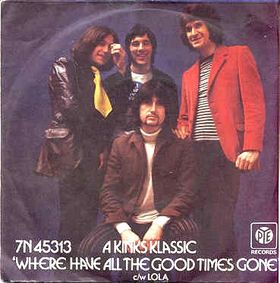This article needs additional citations for verification .(October 2010) |
The Riot Squad | |
|---|---|
 The Riot Squad David Bowie is shown top second left | |
| Background information | |
| Origin | London, England, United Kingdom |
| Genres | Rock, pop |
| Years active | 1964–1967 |
| Labels | Pye Records |
| Past members | --Larry Page-era-- Graham Bonney (vocals) Ron Ryan (guitar) Mark Stevens (keyboards) Mike Martin (bass) Brian Davies (bass) Mitch Mitchell (drums) Rodger Crisp (Bass) Bob Evans (saxophone, flute) --Joe Meek-era-- ContentsThe cabaret act--David Bowie (lead vocalist, guitar, tenor saxophone) Rod Davies (guitar) Brian "Croak" Prebble (vocals) George Butcher (keyboards) Derek Roll (drums) Bob Evans (saxophone, flute) Caldwell Smythe (vocals) |
The Riot Squad were a pop group from London, initially managed and produced by Larry Page and later, for their reunion, by Joe Meek. [1]
The band was formed in late 1964 by Ron Ryan (guitar), Graham Bonney (vocals), Bob Evans (saxophone), Mark Stevens (keyboards), Mike Martin (bass), and Mitch Mitchell (drums). [1] Ron Ryan (born Ronald Patrick Ryan, 20 April 1940, Islington, North London) had, earlier in the decade, written songs and arrangements for the Dave Clark Five, largely uncredited. [2] He left The Riot Squad in early 1965. The only constant member of the band was Bob Evans, who, after the band split for the first time, "reunited" The Riot Squad with all new musicians. Later members included Len Tuckey (guitar), Brian Davies (bass), Roger Crisp (bass), Terry Clifford (guitar), Butch Davis (piano), and Derek "Del" Roll (drums).
In early 1967, they were joined by David Bowie, who at the time was recording material for his self-titled debut album. The band consisted of six members: Bowie (vocal, guitar, mouth-harp), Rod "Rook" Davies (lead guitar), Brian "Croak" Prebble (bass, vocals), Bob Evans (tenor saxophone, flute, vocals), George "Butch" Davis (keyboards) and Derek "Del" Roll (drums). [3] This incarnation recorded several tracks, including a cover of the Velvet Underground's "I'm Waiting for the Man", and a Velvets-influenced Bowie original called "Little Toy Soldier," which lifts its chorus nearly verbatim from The Velvets' "Venus in Furs." [4] These and other songs featuring David Bowie were officially released in 2012 on The Last Chapter: Mods & Sods.
"I Take It That We're Through" was included on the 2004 curated compilation Spacelines by Peter Kember of Spacemen 3.








